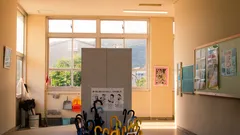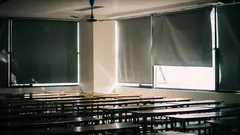248
10
5 minutes
Suggested Articles

First-generation Ivy Leaguers triumph over unique college challenges
Discover key insights, life hacks, and data-driven tips for first-generation college students thriving in prestigious U.S. universities. Find practical strategies, unique challenges, and fresh perspectives essential for student success.

Early IEP access empowers parents to confidently advocate for their child’s needs
Civic Education

Chicago schools transform special education with more support and smarter tools
News & Updates

Federal funding delays threaten vital support for US students and schools
News & Updates

NYC teacher paycheck delays force new educators to choose between bills and students
Hiring

Families face hard choices as new rule narrows Head Start access for immigrant children
News & Updates

Educators warn Head Start exclusion leaves undocumented children behind
Civic Education

Funding freezes put affordable childcare and adult education at risk
News & Updates

Educators and families see sweeping changes as the Supreme Court reshapes school policy
Civic Education

Colorado schools unlock $80M in federal funding, fueling big gains for students
Hiring

School communities brace as $140 million funding freeze strains resources
News & Updates

First-generation Ivy Leaguers triumph over unique college challenges
Hiring

Americans brace for possible Social Security cuts that reshape retirement
News & Updates

Why this Florida data leak changes how we think about privacy
News & Updates

Build your own AI chatbot and unlock hands-on tech superpowers
Resources & Tools

How to outsmart hidden medical expenses in your golden years
Civic Education

California workers secure jobs this summer with new 2025 laws
Hiring
 Love Women Vibes
Love Women Vibes

Comments